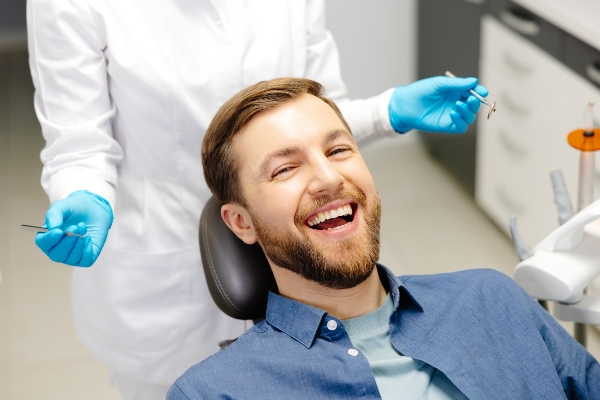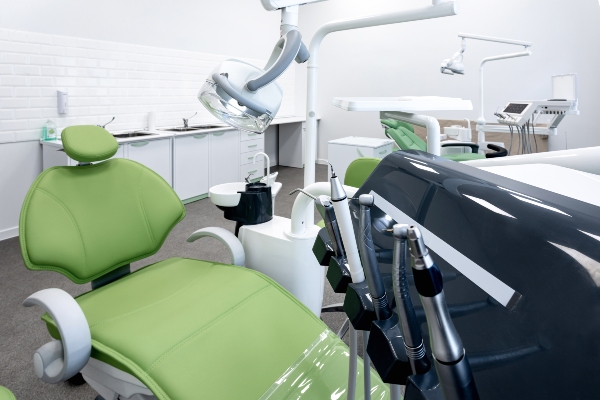 For patients in need of orthodontic care for a variety of issues, such as tooth gaps, crooked teeth or misaligned bites, both Invisalign® and traditional braces are potential treatment options. While many people seek a straight answer to which one of these alternatives is ideal, there are several factors that determine which route is better suited to an individual’s needs. Read to learn what patients should keep in mind when considering these two orthodontic treatments.
For patients in need of orthodontic care for a variety of issues, such as tooth gaps, crooked teeth or misaligned bites, both Invisalign® and traditional braces are potential treatment options. While many people seek a straight answer to which one of these alternatives is ideal, there are several factors that determine which route is better suited to an individual’s needs. Read to learn what patients should keep in mind when considering these two orthodontic treatments.
Factors patients should consider when choosing orthodontic treatment options
While braces and clear aligners are designed with the same goal in mind, to straighten the teeth and address issues with alignment, they both offer different advantages and disadvantages. It comes down to the individual situation and preferences on which treatment option should be pursued.
Aesthetics
One of the main advantages of Invisalign® is that the plastic trays used to straighten teeth are almost invisible, which opens up treatment for people who would otherwise avoid care due to embarrassment about the appearance of braces on the teeth. For working professionals or older patients, having the ability to address any orthodontic issues without anyone noticing is one of the main reasons a person chooses clear aligners over metal braces. However, some younger patients actually look forward to wearing traditional braces and may choose colorful, noticeable rubber bands.
Complexity
While many situations can be treated with either clear aligners or braces, more complex cases often require traditional methods. Braces paired with other appliances, such as expanders, spacers and bite plates, are more effective at addressing severe misalignment, large gaps in teeth, intrusion and extrusion.
Lifestyle
Both Invisalign® and braces require several lifestyle changes on the part of the patient. Traditional braces are fixed on the individual’s teeth and require more orthodontic appointments for making adjustments about every six weeks. There are also dietary changes that need to be made in order to keep from damaging the braces, which includes avoiding many hard or sticky items and snacks.
With clear aligners, patients can sometimes go up to 12 weeks before needing to visit an orthodontist again. Additionally, invisible braces are removable, which means there are no restrictions on food or beverages. However, there is a lot more responsibility on the part of the patient to stick with the treatment plan since the trays can be taken off. People who struggle to consistently wear the aligners for at least the recommended 22 hours a day will struggle to achieve results.
Age
Most orthodontists only offer Invisalign® to older teenagers and adults since these patients are more likely to be compliant than young children. This means that school-aged kids and younger adolescents are only candidates for traditional braces.
Check out what others are saying about our dental services on Yelp: Invisalign in San Francisco, CA.
Conclusion
Understanding the differences between regular braces and clear aligners and what the treatment process looks like for each alternative can help patients choose what will fit with their lifestyle and preferences. Discussing your unique situation with an orthodontist is often the easiest way to gain insight into what treatment will be the most comfortable and effective for you.
Request an appointment or call Serenity Dental Spa at 415-376-6196 for an appointment in our San Francisco office.
Related Posts
Invisalign® treatment demands wearing the aligners for at least 22 hours a day. Read on to learn more about what it is like to sleep while wearing Invisalign aligners. The only time you should take your Invisalign aligners out of your mouth is to eat, drink anything other than water, and brush your teeth. That…
You may be interested in using Invisalign® to correct only your top or lower teeth. Continue reading to learn more about how Invisalign treatment is used. While Invisalign may be used to straighten either the lower or upper teeth, most situations require correcting the two dental arches. The purpose is to ensure patients have a…
Thinking about getting Invisalign®? Read on to learn some of the benefits of choosing this teeth-straightening treatment. Most people want a beautiful smile, but many people do not want to undergo teeth-straightening treatments that involve conspicuous metal braces. Fortunately, another option called Invisalign involves wearing transparent aligner trays over time to correct tooth misalignment. A…


